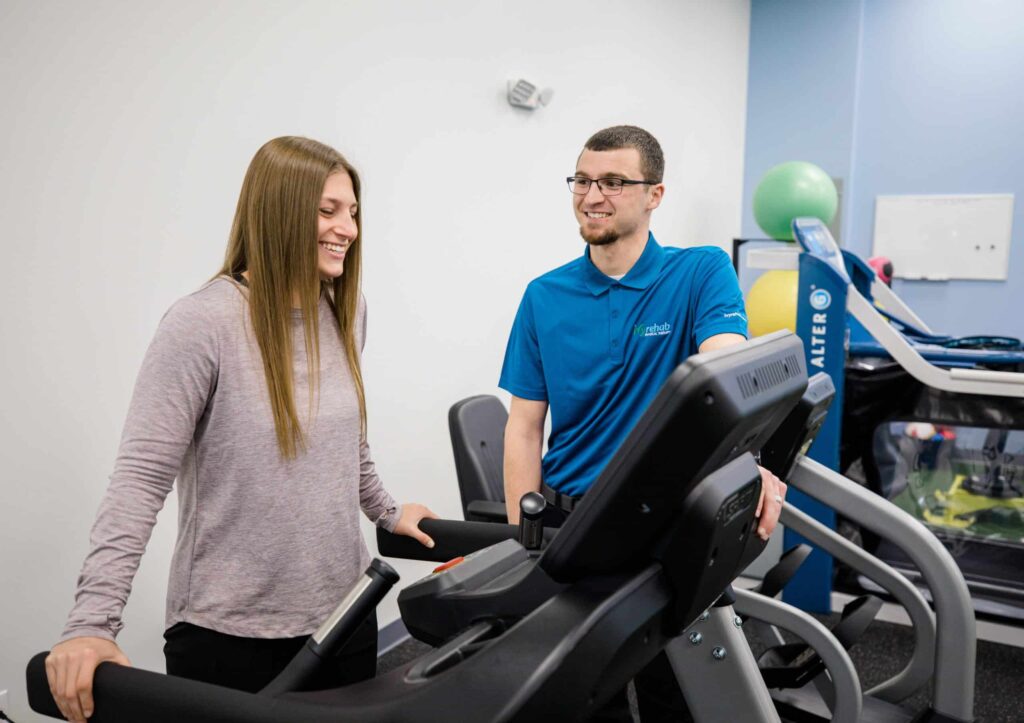“Private industry employers reported 2.7 million nonfatal workplace injuries and illnesses in 2020…” (Bureau of Labor Statistics)
Unexpected pain or injuries may hinder your performance at work or in daily life, which can be frustrating. To heal these injuries, you may be referred to a rehabilitation professional such as an Occupational or Physical Therapist. Occupational Therapists not only treat various injuries that can occur in the workplace but are also skilled in providing recommendations to minimize the risk of injuries in the future.
What is Occupational Therapy
An occupation is not only related to a career or place of work; occupations are the activities people need and want to do in their daily lives. Cooking, cleaning, dressing, managing medications, driving, playing, working, or caring for family members are all considered meaningful occupations.
Occupational Therapists and Occupational Therapy Assistants work with people in outpatient medical facilities, inpatient hospitals, pediatric clinics, schools, independent living, and assistive living facilities to help them participate in their desired occupations. Patients are treated through various therapeutic means that consider the individual’s pain, injury, or illness and the relationship between the patient, the activity, and the environment.
Common Workplace Injuries Occupational Therapy Treats
Workplace injuries may be traumatic or repetitive in how they are acquired. A repetitive strain injury is caused by the prolonged performance of repetitive actions, such as typing on a computer or doing inventory on items in a warehouse or grocery store. Some examples of common repetitive strain injuries treated by Occupational Therapists include:
- Medial/lateral epicondylitis, also known as golfer’s/tennis elbow
- Tendonitis/tendinosis
- Carpal tunnel syndrome
- Cubital tunnel syndrome
Traumatic injuries may include any injury related to a fall, brute force, or a crush under a piece of heavy equipment or in the rollers of a conveyor belt. Examples of these types of injuries typically treated by an Occupational Therapist include:
- Fractures
- Lacerations
- Dislocations
- Amputations
Benefits of Occupational Therapy for Workers
Occupational Therapy may be a good option in the recovery process following an injury at work. Similar to Physical Therapy, Occupational Therapy may assist those who have suffered an injury by:
- Improving the range of motion of the affected area
- Regaining functional strength required to return to necessary occupations
- Eliminating or reducing pain
- Minimizing the need for surgery or future injury
- Providing recommendations related to the workplace environment or how an employee is performing their job
How Occupational Therapy Can Help
Workers’ comp programs at Ivy Rehab are customized for each injured worker. Our Occupational Therapists offer personalized one-on-one care to assist individuals in reaching their goals of returning to work safely.
Occupational Therapy workers’ comp programs may include:
- Evaluations of current skills and abilities as compared to those required for the job
- Assessment of the client’s ability to perform necessary work-related tasks and determine if a patient is fit to return to work after an injury
- Customized treatment plans to meet work-related goals
- Education in symptom management, activity modification, and environmental adaptations may help to enhance work performance
- Home exercise programs
- Appropriate transition to work conditioning programs
For location information or to request an appointment online, visit our website. To learn more about our workers’ compensation and work-related injury programs provided by occupational therapists, please call 1-877-5-Ivy-Comp (1-877-548-9266).
Article By: Katie A. Richter, MS, OTR/L, CEAS I, II
Katie began her Occupational Therapy career three years ago; she graduated from Mercy College with a Master of Science in Occupational Therapy in 2019, after receiving a Bachelor of Arts in Psychology from Stockton University in 2015. Katie enjoys working with the adult orthopedic population and believes in the importance of providing individualized patient care. She is a recent graduate of Ivy Rehab’s Hand Specialization Program in 2021 and is working towards achieving her Certification in Hand Therapy (CHT). Katie is also a Certified Ergonomic Assessment Specialist and enjoys incorporating proper workplace ergonomics in her hand therapy treatment sessions to minimize the risk of repetitive strain injuries. If you are interested in scheduling an appointment with Katie, she is currently accepting new patients at Ivy Rehab in Cranford, New Jersey.





